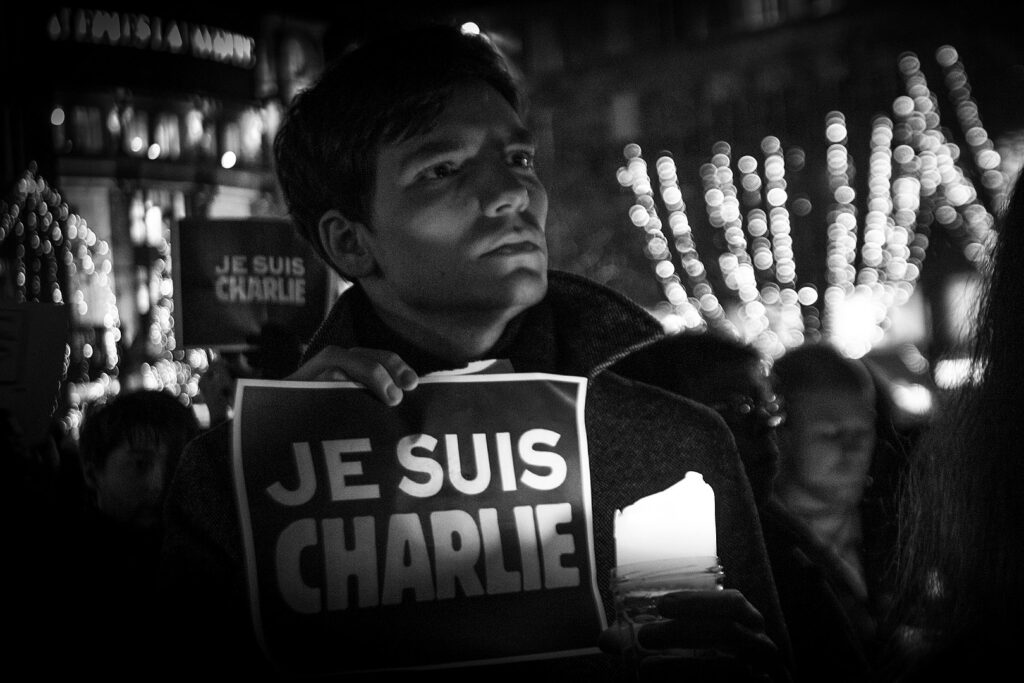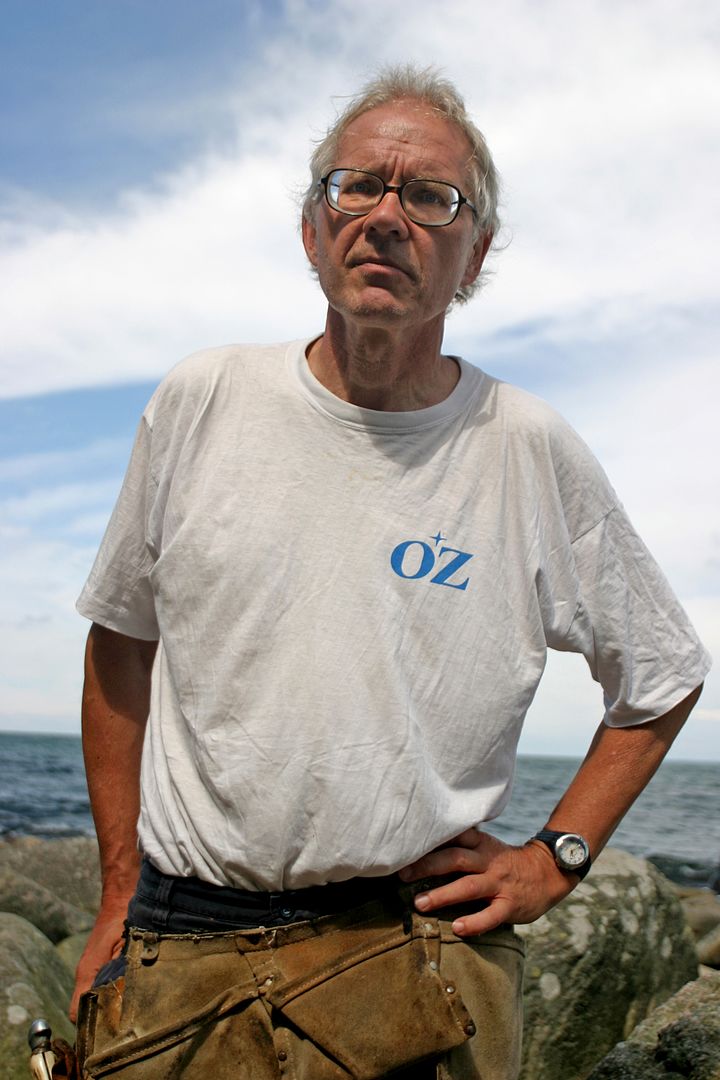We live in an era where we are held hostage, in effect, to anything we have ever said, posted, tweeted or liked.
We are all one unfortunate or inopportune message away from public censure, boycott campaigns or demands that we quit or be fired. Just ask Canadian linguist/thinker Steven Pinker whose works have pissed off a lot of people who think THEY have all the answers to social ills.
Of course there are those who engage in egregious actions online as this piece in Rolling Stone demonstrated. Lives and careers were ruined after some hit the ‘send’ button. Still, is it acceptable to force posters to lose their mode of living over an ephemeral 280 characters? Surely a ‘my bad’ would be ok, no?
Imagine, then, what it would be like to have death threats issued against you and to live under police protection because of something you did, something that is, truth be told, pretty innocuous.
Enter Lars Vilks.
He is the Swedish artist who sketched the head of the Prophet Muhammad on the body of a dog back in 2007, as part of a longer series of drawings published by the Danish newspaper Jyllands Posten two years earlier. The whole thing was a statement on freedom of expression and how far we as a society can go in pushing the buttons of some in our midst.
Terrorists were not impressed. Al Qaeda in Iraq – which later morphed into Islamic State (ISIS) – offered a $100,000 reward for his murder. In 2015, Vilks attended a debate on free speech in Copenhagen that was targeted by a gun-wielding man. Vilks was sure he was the target of the attack, which killed a film director.
As a consequence of all this he received police protection, beginning in 2007. While still under that guard he died in a car accident in southern Sweden on October 4. Swedish investigators said the collision, which also killed two police bodyguards, showed no signs of foul play. It looks therefore that a traffic mishap achieved what the terrorists could not. Vilks was 75 years old at the time of his death.
What to make of all this?
Let’s get this straight. A man draws a CARTOON that some find offensive and he is threatened by terrorists. Does this make ANY sense??
Don’t get me wrong. I DO understand that some pictures and/or texts can make people very upset, especially if this material is perceived to target very personal beliefs, like religion. The fact that Vilks and the Danish newspaper elected to deliberately create images of the Prophet Muhammad that at a minimum were not ‘kosher’ (sorry for that term!) and at a maximum were quite insulting was provocative to say the least. There is room for debate, as did arise in the weeks and months after their issuance, whether we are ok with this level of free speech. In other words, how comfortable are we with disturbing pics and should the state decide how far we can go?
Many would answer that last question with a resounding NO! Who in heaven’s name wants to allow the state to set these restrictions? Yes, there are occasions on which we would all (I think…) agree on what is simply unacceptable (child pornography for instance), but we in the West have built a system – liberal secular democracy – which is very open in what we can think, say,…or post online. Most of us would not want to return to a world where an elite decides what is ok and what is not.
Wherever we stand on this issue of censorship (we in the West cannot get on our high horse as our own history is replete with times where authorities did the exact same thing: anyone remember the Catholic Church’s Index Librorum Prohibitorum which only ceased in 1966?), I hope we can all say that threatening those whose views we do not like with death crosses a bridge too far.
Terrorists though, and especially Islamist ones, are not known for their embrace of free speech however. Their view of the world is harshly fundamentalist and allows for absolutely no diversion from what they have decided is right…and wrong. Their philosophy is, as Bernard Lewis famously wrote, “I’m right, you’re wrong, go to hell”. Except that the terrorists are happy to accelerate your trip to the Underworld by killing you.
Lars Vilks and the Danes were not the only ones to be threatened by Islamist terrorists. Salman Rushdie, who wrote The Satanic Verses back in 1988, was targeted by Iran’s ayatollahs and even translators of his book were on the hit list. There was also a plot to get Rushdie during a trip to Canada: you can read all about it in my latest book The Peaceable Kingdom.
The Bottom Line
It is one thing to express displeasure and demonstrate over a perceived slight. It is quite another to kill over your hurt feelings. I do not know what these tempests in teapots (which potentially lead to deaths) say about those Muslims (and the leaders who egg them on) who get all worked up over these events. The bottom line, however, is that we have to collectively defend our shared right to say stupid shit (even if we personally don’t like it) so that when it is our turn we too will be supported (“I disagree with what you say, but I will defend to the death your right to say it”). Anything short of that is not the kind of world we want to live in.
RIP Lars Vilks and the two officers who died doing their duty.
Read More About Islamist Censorship

January 7, 2015: Charlie Hebdo attack
On January 7, 2015 two French AQAP terrorists forced their way into the Paris offices of the French satirical weekly Charlie Hebdo, killing 11 and wounding another 12.
How NOT to deal with violent extremism
Canadians expect their leaders to stand up against terrorism, not engage in philosophical speeches about ‘yelling fire in a crowded theatre’ in the aftermath of an attack.
Islamic leaders need to look in the mirror
In the wake of heavy criticism by Muslim leaders over French President Macron’s comments about Islam, all fingers are pointed at France as the problem. Is it, or is the Muslim world in crisis?

